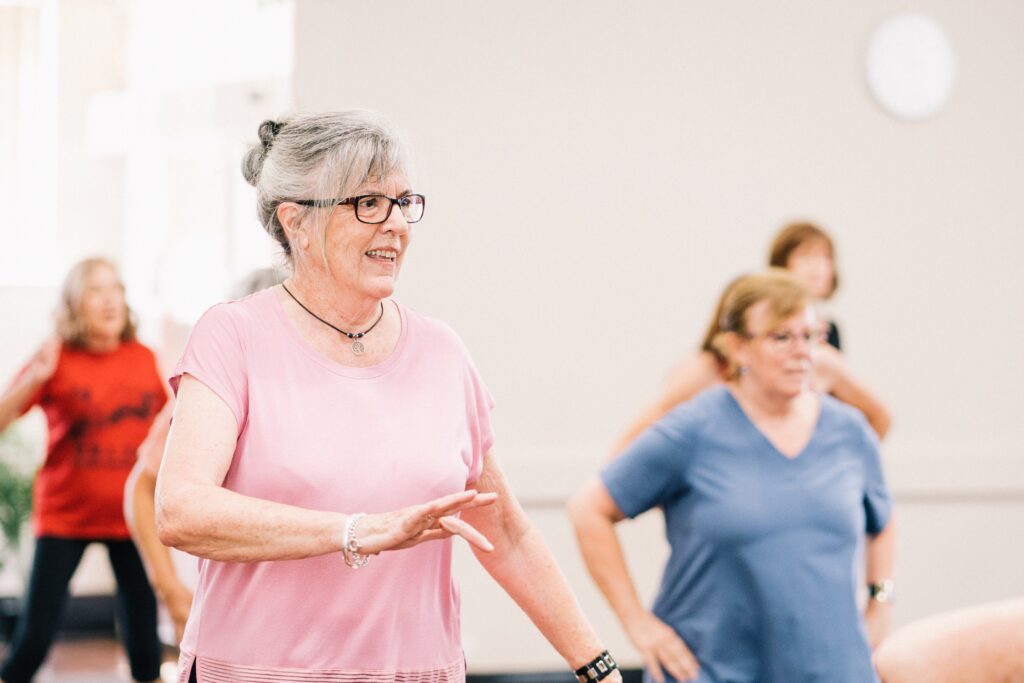Geriatric Medical Care: 8 Key Considerations for Healthy Aging
Contents
- 1 Geriatric Medical Care: 8 Key Considerations for Healthy Aging
- 1.1 Table of Contents
- 1.2 Introduction
- 1.3 The Role of Geriatric Medical Care
- 1.4 Comprehensive Health Assessments: A Foundation for Well-being
- 1.5 Medication Management: Navigating a Multitude of Medications
- 1.6 Nourishing the Body: The Importance of Proper Nutrition
- 1.7 Moving with Purpose: Embracing Physical Activity and Mobility
- 1.8 A Sharper Mind: Fostering Cognitive Health
- 1.9 Connections that Matter: The Power of Social Engagement
- 1.10 Staying Upright: Preventing Falls and Enhancing Safety
- 1.11 Conversations that Count: End-of-Life Planning
- 1.11.0.1 Heart-Healthy Eating for Seniors Tips
- 1.11.0.2 Common Heart Conditions in Old Age and Their Treatments
- 1.11.0.3 Cardiac Rehabilitation for Elderly Patients
- 1.11.0.4 Osteoporosis Prevention in Seniors
- 1.11.0.5 Understanding Arthritis: A Comprehensive Guide to Joint Health
- 1.11.0.6 Managing Arthritis Pain in Seniors
- 1.11.0.7 Exercise Tips for Maintaining Strong Bones in Old Age
- 1.11.0.8 Age-Related Changes in Bone Density and Structure
- 1.12 Conclusion
- 1.13 FAQs
Read DISCLAIMER
Explore the world of geriatric medical care and healthy aging through our informative guide. Learn about 8 crucial considerations for maintaining well-being as you age.
The inevitable aging process becomes increasingly evident as we go through life, and this increased awareness of aging also increases the value of geriatric medical treatment. Numerous changes brought on by aging have an effect on our emotional, mental, and physical health. This article explores the crucial facets of geriatric medical care, concentrating on 8 important factors for encouraging good aging. We’ll discuss the importance of thorough health evaluations, medication management, a healthy diet, exercise, social engagement, fall prevention, and end-of-life preparation. Let’s set out on a trip to discover how these important factors contribute to a happy and active life in our senior years.

Table of Contents
1. Introduction
2. The Role of Geriatric Medical Care
3. Comprehensive Health Assessments: A Foundation for Well-being
4. Medication Management: Navigating a Multitude of Medications
5. Nourishing the Body: The Importance of Proper Nutrition
6. Moving with Purpose: Embracing Physical Activity and Mobility
7. A Sharper Mind: Fostering Cognitive Health
8. Connections that Matter: The Power of Social Engagement
9. Staying Upright: Preventing Falls and Enhancing Safety
10. Conversations that Count: End-of-Life Planning
11. Conclusion
12. FAQs
Introduction
The process of aging is a normal and unavoidable aspect of life, one that is characterized by changes and transitions. In order to help us age healthily, geriatric medical care becomes increasingly important as we approach our golden years. This extensive manual addresses the basic ideas that underlie geriatric medical care, illuminating how they support a happy and active existence far into our older years.

The Role of Geriatric Medical Care
Geriatric medicine, often known as geriatrics, is a specialist area of healthcare that caters to the particular requirements of elderly people. The discipline of geriatrics has grown in importance as a result of improvements in total life expectancy and medical knowledge, ensuring that latter phases of life are marked by quality and vitality.
Comprehensive Health Assessments: A Foundation for Well-being
The cornerstone of geriatric medical treatment is routine health examinations. These evaluations give medical practitioners important information about a person’s general health and form the basis of individualized care programs. Comprehensive health evaluations enable older persons to take proactive efforts to preserve their well-being by identifying possible health issues early on.

As we become older, it becomes more likely that we’ll have to manage various health issues, which frequently necessitates a complicated drug schedule. The need of effective drug administration, including regular monitoring for interactions and adverse effects, is emphasized in geriatric medical treatment. Healthcare professionals carefully monitor drugs to make sure they benefit a patient’s health.
Nourishing the Body: The Importance of Proper Nutrition
The foundation for good aging is proper nutrition. For sustaining physical vigor and avoiding nutritional deficiencies, a well-balanced diet rich in important nutrients is needed. In order to help older people make wise food decisions, geriatric medical care places a strong emphasis on the contribution that nutrition makes to general health and well-being.

Moving with Purpose: Embracing Physical Activity and Mobility
Mobility and physical activity are essential for healthy aging. Regular exercise that is catered to an individual’s ability and requirements is encouraged by geriatric medical care. Physical activity helps older persons become stronger, more flexible, and more balanced, which improves their quality of life and independence.
A Sharper Mind: Fostering Cognitive Health
As we age, cognitive health becomes increasingly crucial. Assessments and treatments are part of geriatric medical care for maintaining mental acuity, memory retention, and brain function. A healthy lifestyle combined with mentally challenging activities helps to sustain cognitive well-being.

Connections that Matter: The Power of Social Engagement
The benefits of maintaining social connections for older persons are enormous. The benefits of social interaction include improved mental and emotional health as well as decreased feelings of loneliness and isolation. Strong social ties must be maintained in order to sustain general vitality, according to geriatric medical treatment.
Staying Upright: Preventing Falls and Enhancing Safety
Older persons should be especially cautious about falls since they frequently result in injuries and reduced independence. The primary goals of geriatric medical treatment are to avoid falls, identify risk factors, and put safety measures in place to reduce the likelihood of accidents.
Conversations that Count: End-of-Life Planning
Planning for the end of life is an essential component of geriatric medical treatment. A person’s choices are honored and carried out when advance directives, healthcare decisions, and end-of-life preferences are discussed openly. This brings both the individual and their loved ones peace of mind.
Read more about
Heart-Healthy Eating for Seniors Tips
Common Heart Conditions in Old Age and Their Treatments
Cardiac Rehabilitation for Elderly Patients
Osteoporosis Prevention in Seniors
Understanding Arthritis: A Comprehensive Guide to Joint Health
Managing Arthritis Pain in Seniors
Exercise Tips for Maintaining Strong Bones in Old Age
Age-Related Changes in Bone Density and Structure
Conclusion
Geriatric medical care emerges as a guiding light, blazing a way towards healthy and fruitful golden years as we traverse the complexities of aging. Older adults can embark on a journey of vibrant and fulfilling aging by embracing comprehensive health assessments, managing medications effectively, prioritizing proper nutrition, exercising, nurturing cognitive health, fostering social connections, avoiding falls, and engaging in thoughtful end-of-life planning.
FAQs
Q: Is geriatric medical care only for those with existing health conditions?
A: No, geriatric medical care is beneficial for all older adults, whether they have existing health conditions or not. Prevention and proactive care are essential for healthy aging.
Q: What is the role of a geriatric healthcare provider?
A: Geriatric healthcare providers specialize in addressing the unique needs of older adults, including preventive care, management of chronic conditions, and promoting overall well-being.
Q:Can physical activity benefit older adults with mobility challenges?
A: Yes, physical activity can be adapted to accommodate various mobility levels. Geriatric healthcare professionals can design exercise routines that are safe and effective.
Q: How can cognitive health be promoted in older adults?
A: Cognitive health can be promoted through activities that stimulate the brain, such as puzzles, games, and social interactions. Additionally, maintaining a healthy lifestyle and managing chronic conditions contribute to cognitive well-being.
Q: When should end-of-life planning discussions take place?
A: End-of-life planning discussions should take place early on, preferably before a healthcare crisis occurs. It’s important to communicate one’s wishes and preferences while they are still able to do so.
**Focus Keywords:**
1. Geriatric medical care
2. Healthy aging
3. Key considerations
4. Geriatric healthcare
5. Aging well
**Labels:**
1. Elderly health
2. Aging gracefully
3. Senior care
4. Geriatric wellness
5. Aging tips
6. Healthcare for seniors
7. Elderly wellbeing
8. Golden years guidance
9. Age-related health
10. Senior health insights
**Names:**
1. Age with Grace: Navigating Geriatric Medical Care
2. Wellness in Later Years: A Guide to Healthy Aging
3. Vital Steps: 8 Considerations for Geriatric Health
4. Your Golden Age: Mastering Geriatric Healthcare
5. Aging Vibrantly: Unveiling the Key to Senior Wellness
6. Thriving in Golden Years: Geriatric Care Essentials
7. Beyond Youth: Unlocking the Secrets of Aging Well
8. Wisdom of Age: Geriatric Health and Well-being
9. Embrace the Years: Geriatric Medical Care Demystified
10. Senior Wellness Unveiled: Geriatric Health Insights
**Snippet:**
Discover the secrets to aging gracefully with our comprehensive guide to geriatric medical care. Uncover the 8 key considerations for healthy aging that will empower you to make informed choices for your well-being.
**Meta Description:**
Explore the world of geriatric medical care and healthy aging through our informative guide. Learn about 8 crucial considerations for maintaining well-being as you age.
**Tags:**
Geriatric medical care, Healthy aging, Aging well, Geriatric healthcare, Senior wellness, Elderly health, Age-related health, Senior care, Wellness in later years, Geriatric wellness, Golden years, Aging tips, Senior health, Elderly wellbeing, Age gracefully, Geriatric health insights, Aging gracefully, Senior wellbeing, Aging secrets, Geriatric care, Elderly wellness, Age-related wellness, Senior health guide, Aging essentials, Geriatric wellness tips, Aging journey, Aging with vitality, Geriatric health strategies, Senior care insights, Aging wellness, Geriatric health considerations

Can you be more specific about the content of your article? After reading it, I still have some doubts. Hope you can help me.
Can you be more specific about the content of your article? After reading it, I still have some doubts. Hope you can help me.
Your article helped me a lot, is there any more related content? Thanks!
Thank you for your sharing. I am worried that I lack creative ideas. It is your article that makes me full of hope. Thank you. But, I have a question, can you help me?
Your point of view caught my eye and was very interesting. Thanks. I have a question for you.
Thank you for your sharing. I am worried that I lack creative ideas. It is your article that makes me full of hope. Thank you. But, I have a question, can you help me?
Thank you for your sharing. I am worried that I lack creative ideas. It is your article that makes me full of hope. Thank you. But, I have a question, can you help me?